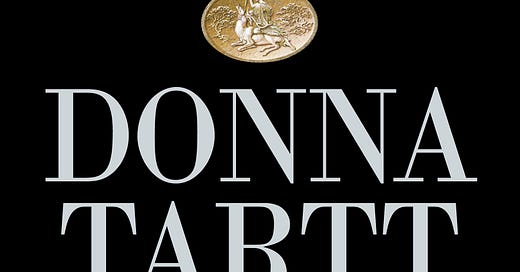Beauty Is Terror: Julian’s Dionysian Path Beyond Morality
“Beauty is terror. Whatever we call beautiful, we quiver before it”.
“Beauty is terror. Whatever we call beautiful, we quiver before it”.
What does it mean to say beauty is terror?
Beauty in and of itself isn’t evil; it’s the word you would use to describe a bouquet of flowers, a word filled with positivity and purity.
Julian, however, defiles this purity through the ideological pursuit of moral detachment. For Julian, true beauty can only be found outside the deterministic confines of morality. It’s a bliss reserved for those courageous enough to take a blind step beyond moral bounds.
Courage is the axiomatic trait of Julian’s philosophical aestheticism. One must have the courage to combat the terror of walking into a boundless existence. This is, to say the least, a very Dionysian view.
While Dionysus never appears in the book, his presence is felt throughout. This presence is embodied in Julian’s charismatic charm and dark pursuit of aesthetic purity. Julian is an archetypal figure whose teachings, much like the god’s, seek to seduce and destroy.
“For when a man’s life runs it’s course in luxury and softness, he comes to an end in misery and pain” — Euripides, The Bacchae.
Euripides could not be closer to the truth. Henry was seduced into philosophical aestheticism by a man who lacked the courage to delve into his own definition of beauty — a man who fled and abandoned his student (follower) to the confines of a world governed by morality and justice.
Julian’s promise of transcendence beyond the traditional confines of morality was purely empty rhetoric, and Henry’s fate stands as a testament to this. Like Dionysus, a master of seduction, Julian promoted exclusivity and the mystification of outsiders — creating a dangerous group of sheltered, morally detached intellects.
Julian was right that beauty is terror. Just as anything becomes terror when we create a boundless path that has to break morality to reach it.
See you at the next chapter.
🛒 Want to Grab a Copy of The Secret History?
Amazon (paperback & hardback)
(Some links in this post are affiliate links. They help support Readingshack at no extra cost to you. Thank you!)





Really interesting insights here! Also started rereading recently and it strikes me that it's seeded from the start and woven deep into Richard as our narrator.
It's there from the start of Chapter 1:
"Does such a thing as 'the fatal flaw,' that showy dark crack running down the middle of a life, exist outside literature? I used to think it didn’t. Now I think it does. And I think that mine is this: a morbid longing for the picturesque at all costs."
Really, it's a Dionysian desire for beauty at all costs that proves everyone's undoing.
A lot to think about. Thanks so much for posting!
I love this, especially the Dionysus comparisons! Julian is a fascinating character; you should write another piece delving more into him